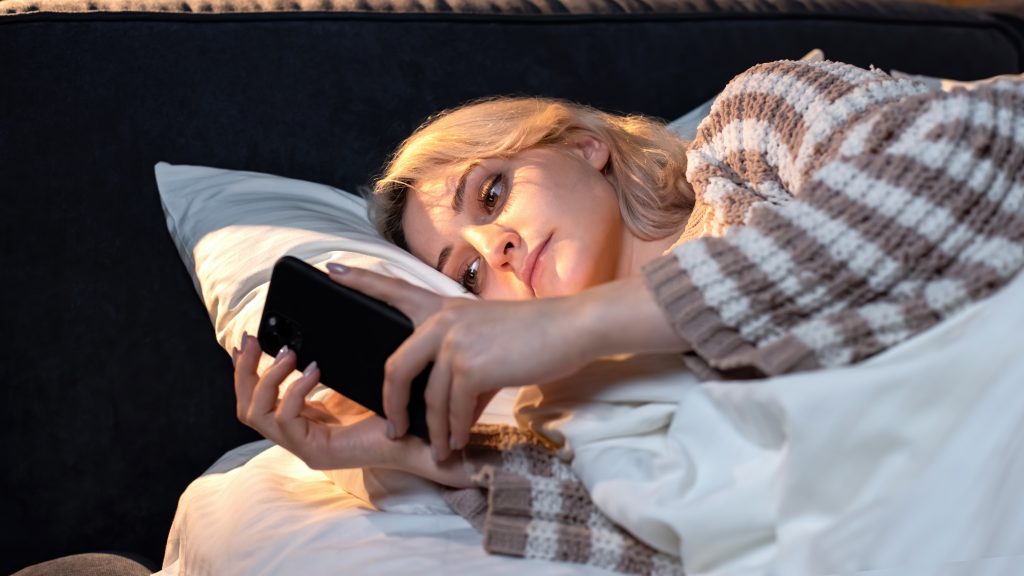In a world increasingly shaped by screens, the impact of digital exposure on our sleep quality is drawing serious attention. From late-night scrolling to binge-watching shows in bed, screen time habits are now deeply entwined with our nighttime routines. But as convenient as technology is, it has a significant influence on our biological systems—particularly our sleep hormones.
This article explores the growing concern over how screen time affects sleep hormones, with a focus on melatonin disruption, circadian rhythm misalignment, and what emerging research says about solutions. As awareness grows, so does the need for practical guidance and healthier tech habits.

Understanding Sleep Hormones and Why They Matter
Sleep is governed by a complex interplay of hormones, with melatonin being the most prominent. Produced by the pineal gland, melatonin signals the body when it’s time to wind down. Its release is closely tied to light exposure, particularly blue light.
Other important players include:
- Cortisol – a hormone that helps regulate wakefulness and stress.
- Adenosine – builds up throughout the day and creates sleep pressure.
- Serotonin – a precursor to melatonin, influenced by daylight and mood.
When screen time disrupts this hormonal balance—especially in the evening—it becomes harder to fall asleep, stay asleep, and wake up feeling rested.
The Blue Light Factor: Why Screens Interfere with Sleep
Most screens—phones, tablets, laptops, and TVs—emit blue light, a short-wavelength light known to suppress melatonin production. A study published in the journal PNAS found that individuals who used e-readers before bed took longer to fall asleep, had reduced evening sleepiness, and saw delays in their circadian rhythm compared to those reading printed books (Chang et al., 2015).
How Blue Light Impacts Your Sleep Hormones:
- Melatonin Suppression: Exposure to blue light in the evening delays melatonin release, confusing your brain into thinking it’s still daytime.
- Circadian Rhythm Disruption: When melatonin is delayed, your natural sleep-wake cycle shifts, leading to inconsistent sleep patterns.
- Reduced REM Sleep: Research has shown that artificial light can reduce the amount of restorative REM sleep, impairing memory and emotional regulation.
Emerging Trends: Digital Detox and Screen-Filtering Technology
As concerns over digital exposure grow, several trends have emerged to mitigate the effects of screen time on sleep hormones:
1. Night Mode and Blue Light Filters
Most smartphones, laptops, and even TVs now offer “Night Mode” or “Eye Comfort Shield” settings. These features shift the display toward warmer colors, reducing blue light exposure. While not a complete solution, studies show they can significantly lower melatonin suppression compared to unfiltered screens (Harvard Health Publishing, 2020).
2. Wearable Sleep Tech and Monitoring Apps
Devices like Oura Rings, WHOOP straps, and sleep tracking apps are helping users monitor how their behavior—including screen time—affects sleep. These tools provide insights into how sleep hormones fluctuate in response to digital habits.
3. Digital Curfews and Mindful Usage
The “digital sunset” concept—avoiding screens at least one hour before bed—is becoming increasingly popular. Experts recommend replacing screen time with relaxing activities like reading physical books, stretching, or meditative breathing to restore melatonin levels naturally.
Practical Guide: Managing Screen Time for Better Sleep
Here’s how you can reduce the impact of screen time on sleep hormones:
1. Set a Screen Curfew
Avoid screens at least 60–90 minutes before bed. This helps melatonin levels rise naturally and prepares the body for sleep.
2. Use Blue Light Filters
Enable night mode or use blue-light-filtering glasses in the evening. These tools reduce melatonin disruption, especially if you must use a device after dark.
3. Dim the Lights
Not all light is equal. Dimming lights in your home and switching to warm-colored bulbs after sunset helps reinforce your body’s natural cues.
4. Adopt Screen-Free Routines
Develop a pre-bedtime ritual that excludes electronics. Try activities such as:
- Journaling
- Listening to calm music or audiobooks
- Practicing mindfulness or guided meditation
5. Limit Stimulation
Avoid engaging or stress-inducing content late at night. Doomscrolling or watching thrilling shows can spike cortisol levels and delay sleep.
Screens and Sleep in Children and Teens
Younger age groups are particularly vulnerable to the effects of screen time on sleep hormones. The American Academy of Pediatrics (2022) warns that excessive nighttime screen use in children can lead to delayed sleep onset, decreased total sleep time, and behavioral issues linked to sleep deprivation.
Schools and parents are increasingly introducing screen limits in the evening hours and encouraging screen-free bedrooms to promote healthy melatonin production.
The Research Consensus
Recent scientific reviews agree that there is a strong correlation between screen exposure and disruptions in sleep hormone regulation. For instance:
- A 2023 review in Sleep Medicine Reviews concluded that reducing evening screen time leads to measurable improvements in sleep onset latency and melatonin onset.
- Research by the Journal of Clinical Endocrinology & Metabolism found that blue light exposure suppresses melatonin for twice as long as other wavelengths.
These findings reinforce the growing call for mindful screen usage—especially before bed.
Moving Forward: Balancing Tech and Well-being
While it’s unrealistic to eliminate screens entirely, awareness and moderation are key. Understanding how screen time affects sleep hormones can empower individuals to make more informed choices about their tech habits.
For workplaces, schools, and families, the next step involves rethinking how digital tools are integrated into everyday life—especially when they begin to interfere with one of our most vital biological functions: sleep.
References:
- Chang, A. M., Aeschbach, D., Duffy, J. F., & Czeisler, C. A. (2015). Evening use of light-emitting eReaders negatively affects sleep, circadian timing, and next-morning alertness. Proceedings of the National Academy of Sciences, 112(4), 1232–1237. https://doi.org/10.1073/pnas.1418490112
- Harvard Health Publishing. (2020). Blue light has a dark side. Harvard Medical School. https://www.health.harvard.edu/staying-healthy/blue-light-has-a-dark-side
- American Academy of Pediatrics. (2022). Media and young minds. https://publications.aap.org/pediatrics/article/138/5/e20162591
- Sleep Medicine Reviews. (2023). Systematic review: The impact of digital screen use on melatonin and sleep.
- Journal of Clinical Endocrinology & Metabolism. (2021). Differential melatonin suppression by light wavelengths in humans. https://academic.oup.com/jcem/article/106/3/e1234/6132504






